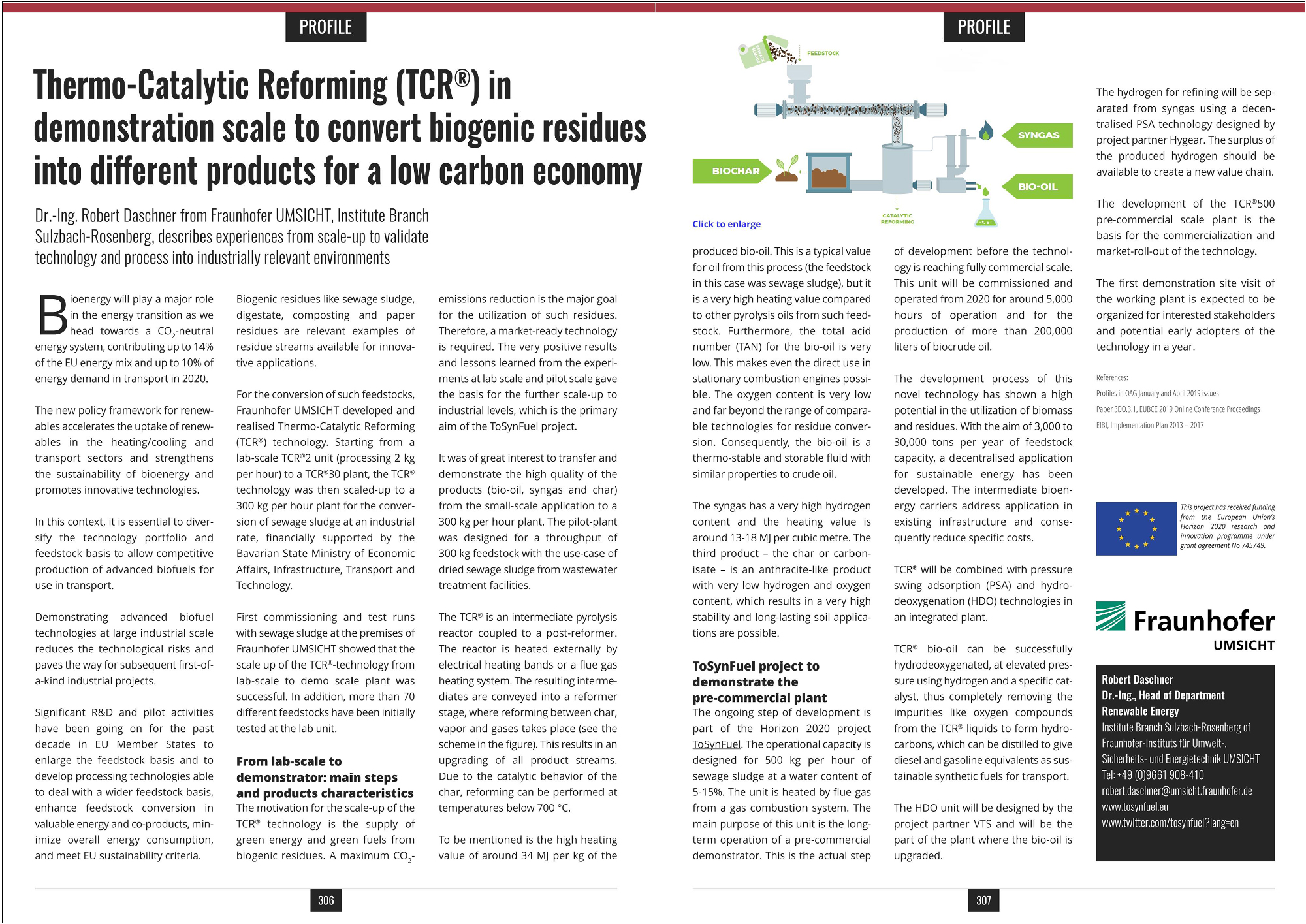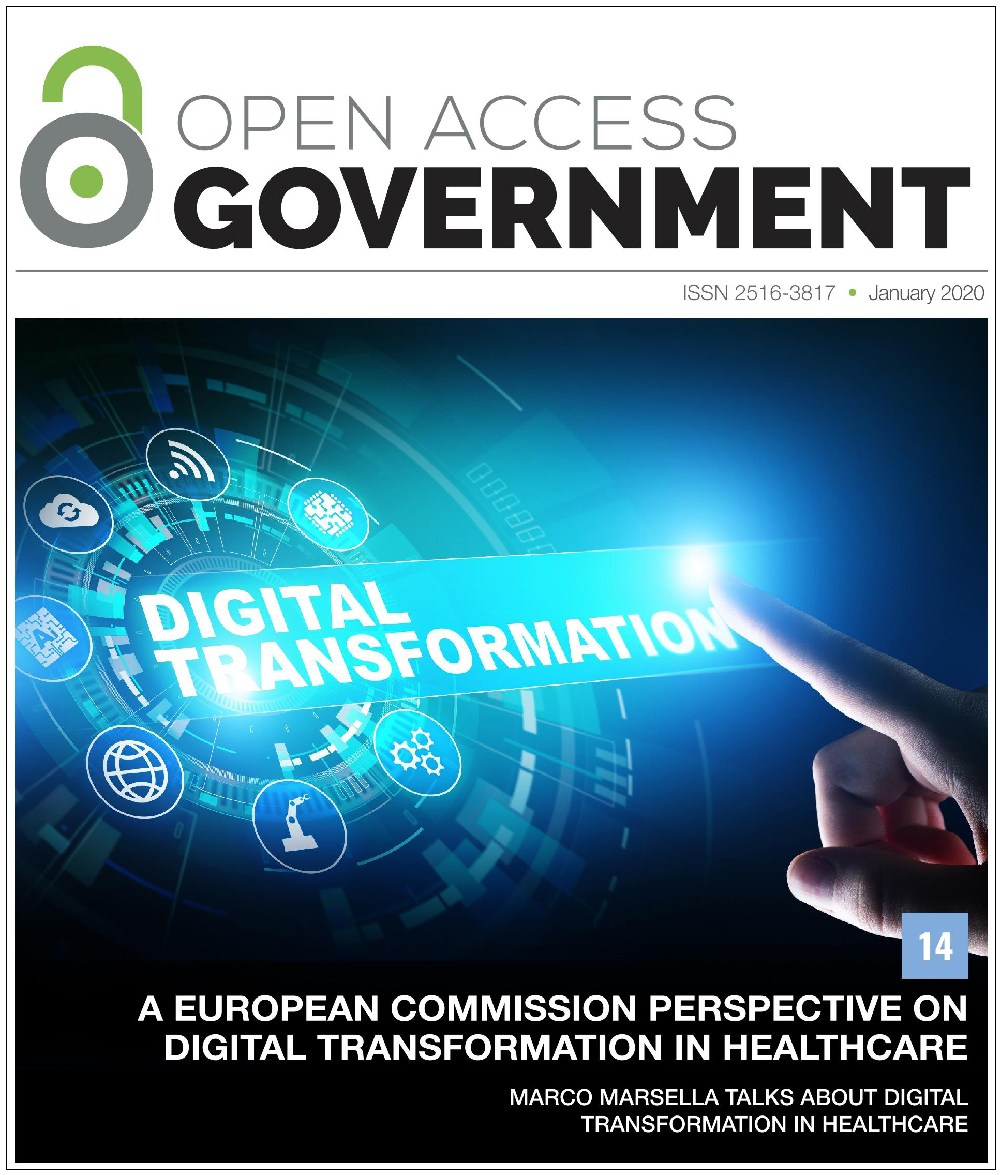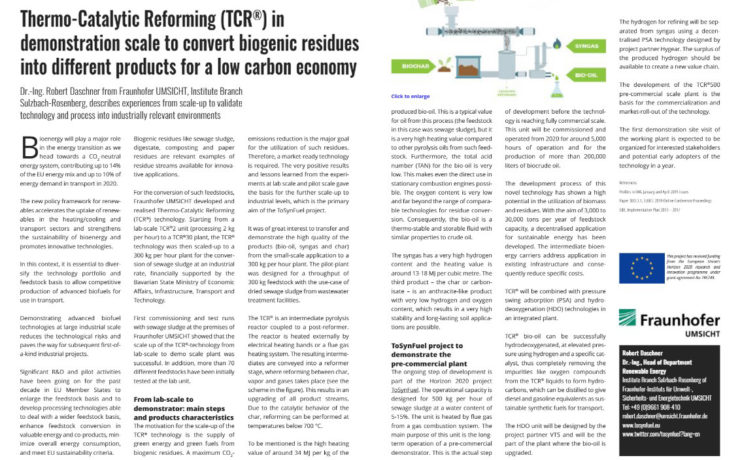TOSYNFUEL Project featured on the latest issue of Open Government Publication
An interesting and detailed article about TO-SYN-FUEL Project has been published on the Open Access Government Publication, issue January 2020.
Bioenergy will play a major role in the energy transition as we head towards a CO2-neutral energy system, contributing up to 14% of the EU energy mix and up to 10% of energy demand in transport in 2020. The new policy framework for renewables accelerates the uptake of renewables in the heating/cooling and transport sectors and strengthens the sustainability of bioenergy and promotes innovative technologies.
In this context, it is essential to diversify the technology portfolio and feedstock basis to allow competitive production of advanced biofuels for use in transport.  Demonstrating advanced biofuel technologies at large industrial scale reduces the technological risks and paves the way for subsequent first-of-a-kind industrial projects.
Demonstrating advanced biofuel technologies at large industrial scale reduces the technological risks and paves the way for subsequent first-of-a-kind industrial projects.
Biogenic residues like sewage sludge, digestate, composting and paper residues are relevant examples of residue streams available for innovative applications. For the conversion of such feedstocks, Fraunhofer UMSICHT developed and realised Thermo-Catalytic Reforming (TCR®) technology. Starting from a lab-scale TCR®2 unit (processing 2 kg per hour) to a TCR®30 plant, the TCR® technology was then scaled-up to a 300 kg per hour plant for the conversion of sewage sludge at an industrial rate, financially supported by the Bavarian State Ministry of Economic Affairs, Infrastructure, Transport and Technology.
To download the article, please click here:
https://edition.pagesuite-professional.co.uk/html5/reader/production/default.aspx?pnum=306&edid=e7e65f16-14bb-415e-a4a7-84c443d8db40
